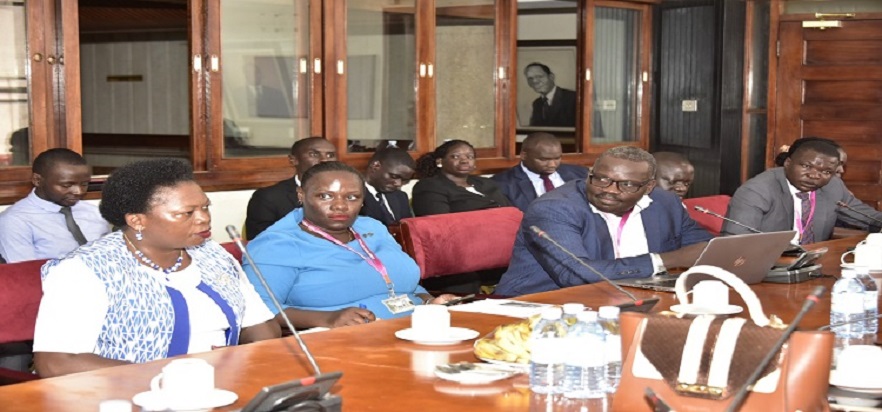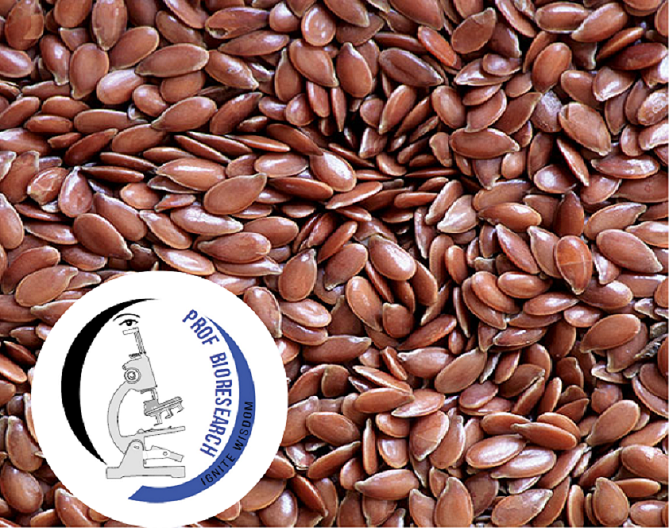Hon. Ntabazi (L) with other officials from the Trade ministry during the committee meeting
The Ministry of Trade, Industry and Cooperatives has developed policies to ensure that safe and high quality agro commodities are sold in the domestic and international markets.
According to Alfred Oyo Andima, the Under Secretary at the Ministry of Trade, the National Trade Policy, Grains Trade Policy and Standard and Quality Policy provide measures to ensure aflatoxin-free foods on the market.
“The ministry through Uganda National Bureau of Standards and the private sector has strengthened the capacity to test for mycotoxins at different levels of the value chain,” said Andima.
He said this while appearing before the joint Committee on Health and Agriculture on Thursday, 05 October 2023. The committees are assessing the impact of aflatoxin contamination in foods.
Andima added that the sector has also developed standards for grains and facilities for their enforcement.
To facilitate certification and enforcement activities, Daniel Makayi, the UNBS Acting Executive Director said the Bureau has decentralised testing facilities to Gulu, Mbale and Mbarara, with laboratories equipped to analyse mycotoxins and other contaminants.
“The existing legal framework in Uganda, with reference to the quality of grain is the issuance of the SPS permit from Ministry of Agriculture and enforcement of the distinctive mark [Q-Mark] issued by UNBS,” said Makayi.
He noted that the bureau has 37 surveillance officers managing enforcement in the entire country, and made a call for more staff to improve market surveillance and import inspection.
“With an annual staff recruitment of 100 for the next two years, we should be in position to reduce the turnaround time for testing and certification services by 50 per cent,” Makayi added.
The State Minister for Trade, Hon. Harriet Ntabazi said premature harvesting by farmers has affected the standard of grain produce which makes sellers dodge standard certification procedures.
“They sneak from UNBS checkpoints onto the market; so you will find high aflatoxin levels even if we fight it as government. This is what happened at the border in Nimule where seven trucks sneaked away without testing by UNBS,” she said.
Ntabazi called for more financing to the Trade Ministry to facilitate procurement of portable testing equipment to effectively check for aflatoxins.
Humphrey Mutaasa, the Chief Technical Officer at Grain Council of Uganda said Uganda loses an estimated US$38 million annually in missed export opportunities due to aflatoxin contamination.
He noted that aflatoxin contamination does not begin from the post-harvesting but rather in soils and suggested the breeding of resistant crippled breeds to control growth of molds.
“In the field, application of good agricultural practices like selection of fungal-resistant seeds, irrigation, proper use of fungicides and selection of right planting and harvest times all play significant roles in mold control,” Mutaasa said.
Legislators emphasised the need to promote cooperatives that can bring farmers together and teach them about certification of their produce and facilities.
“If we revive cooperatives, it will solve challenges related to training of farmers. Most of them deal with businessmen who offer them quick money for their produce and these are mistakes we should avoid,” said Hon. Florence Nebanda (NRM, Butaleja District Woman Representative).
Hon. Ephraim Biraaro (NRM, Buhweju West County) added that cooperatives will effectively manage the business of ensuring quality assurance.





